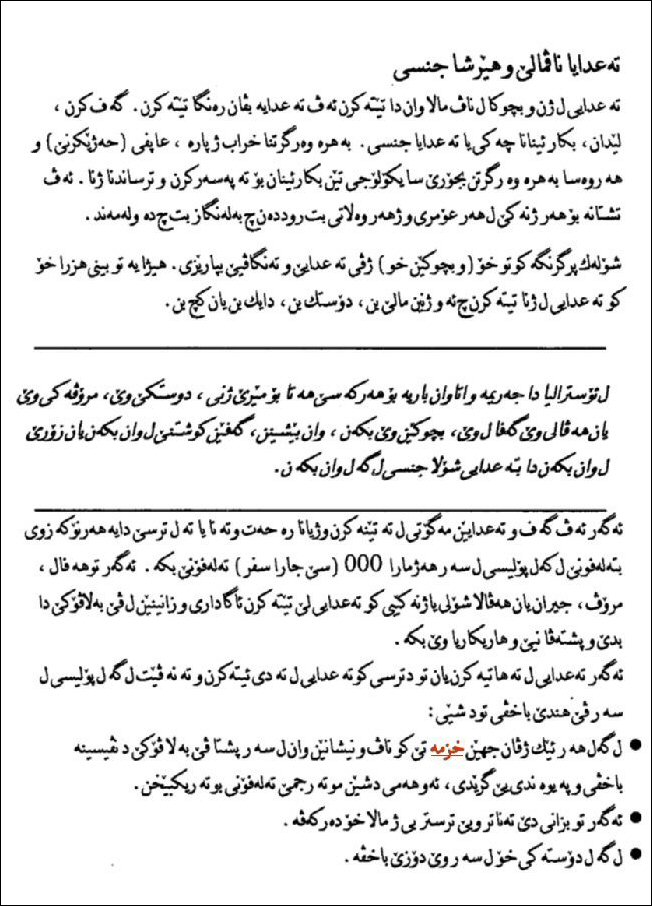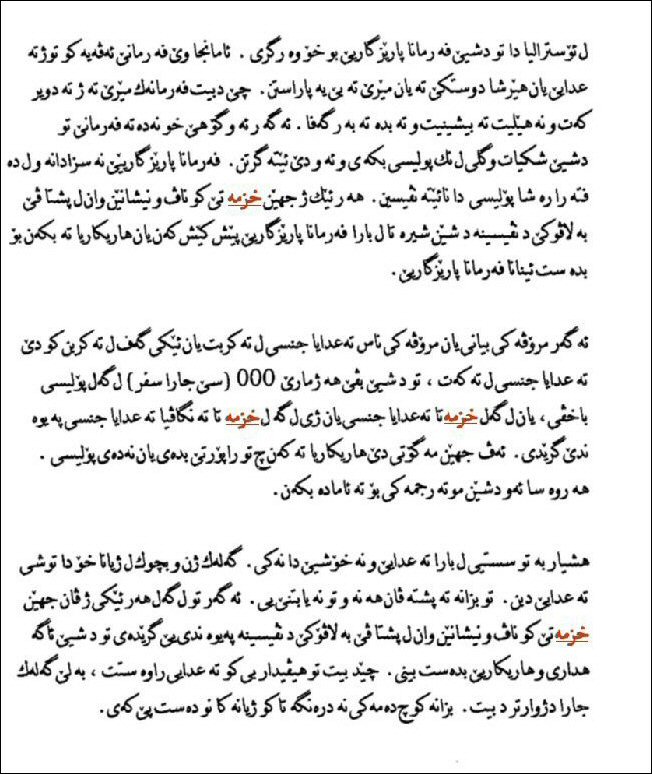 |
كورديا كورمانجى  Kurmanji Kurmanji  Kurdish Kurdish
Page 1 of 1
|
|
by the Australian
Government Office of the Status of Women with assistance from
the New South Wales Department for Women and the Victorian Community Council
Against Violence (1991)
تهعدايا ناڨمالێو هيڒشا جنسى
Domestic Violence & Sexual Assault: We can all do something about it!
*see English below




Domestic Violence and Sexual Assault - Australia
Many women and children experience violence, often in their own
homes. The violence can include insults, threats, bashings, use of
weapons and sexual violence. Financial, emotional and psychological
abuse are also used to control and frighten women. It happens to
women of all ages and from all countries, whether they are rich or
poor.
Protecting yourself (and your children) from violence is an important
step to take. It is important to remember that violence happens to
many women: wives, partners, mothers and daughters.
In Australia, it is a crime for anyone, including your husband
or partner, relative or friend, to hurt you or your children,
threaten to hurt or kill you, or to force you to have sex.
If you experience this sort of violence and your safety is being threatened
you can call the police immediately on 000. If you are a friend,
relative, neighbour or workmate of a woman being hurt give her the
information on this leaflet and offer her your support.
If you have been assaulted, or are afraid that you will be, and you do
not want to contact the police you can:
- contact any of these services—they can all
arrange for a telephone interpreter
- leave your house if you would feel safer
- talk to a friend.

In Australia you can obtain a protection order, which aims to protect
you from violent behaviour from your partner. An order may tell your
partner to stay away from you and not to hurt or threaten you. If they
do not obey the order you can complain to the police and they can be
arrested. A protection order is not a punishment and does not give a
criminal record. Any of these services can give
you advice on protection orders and /or assist you in obtaining an
order.
If you have been sexually assaulted by a stranger or someone you
know (or someone has threatened or attempted to sexually assault
you), you can contact the police on 000 or a sexual assault or rape crisis
service. These services will support you whether or not you choose
to make a report to the police. They can also arrange an interpreter.
Remember you do not have to tolerate violence. Many women and
children experience violence in their lives. You are not alone. By contacting
any of these services, you can get
advice, assistance and support. You may be hoping for the violence to
stop but it often will only get worse. It is never too late to start a new
stage of your life.
|
|

|